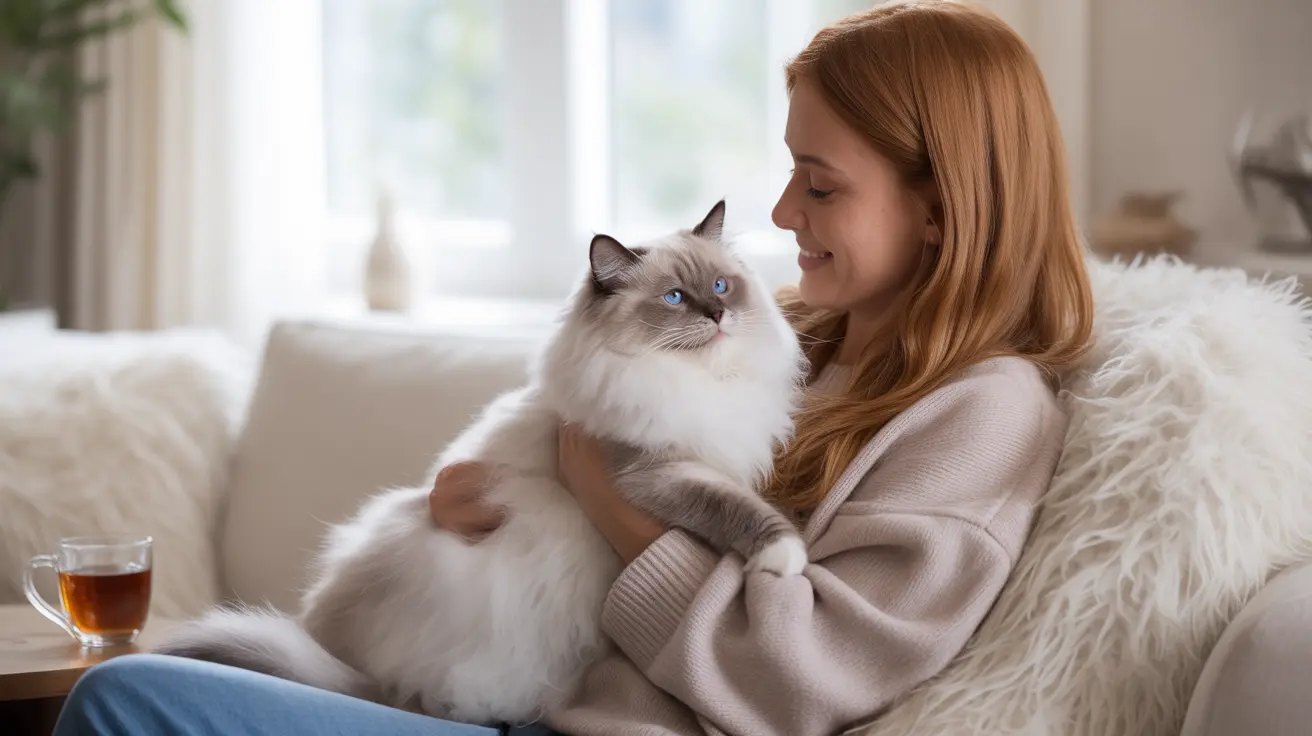Understanding Your Cat's Enhanced Sensitivity During Menstruation
If you've noticed your feline friend becoming extra affectionate during your menstrual cycle, you're not alone. Many cat owners report their pets displaying increased clinginess or attention-seeking behavior during this time. This fascinating phenomenon has both biological and behavioral explanations that showcase the remarkable sensory capabilities of our feline companions.
Cats possess an extraordinary sense of smell, with approximately 200 million scent receptors - about 14 times more powerful than humans. This heightened olfactory ability enables them to detect subtle changes in their environment, including variations in human hormones and body chemistry that occur during menstruation.
The Science Behind Your Cat's Behavior
Hormonal Detection and Response
During menstruation, your body undergoes significant hormonal fluctuations that cats can detect through their advanced olfactory system. These changes include variations in estrogen and progesterone levels, which can alter your natural scent in ways that are imperceptible to humans but quite noticeable to cats.
Additionally, cats can detect the presence of blood and associated pheromones, which may trigger their natural instinct to provide comfort and protection to what they perceive as a potentially vulnerable member of their family group.
Physical and Emotional Changes
Cats are incredibly attuned to their owners' emotional states and physical comfort levels. During menstruation, changes in your behavior, activity level, or emotional state may prompt your cat to respond with increased attention and affection. This response demonstrates their emotional intelligence and the strong bond they share with their human companions.
Common Clingy Behaviors During Menstruation
Physical Manifestations
During your period, you might notice your cat exhibiting several distinctive behaviors:
- Increased following and shadowing
- More frequent lap-sitting and cuddling
- Persistent headbutting and rubbing against you
- Enhanced vocalization and purring
- Sleeping closer to you than usual
Understanding Your Cat's Motivation
These behaviors often stem from a combination of factors, including your cat's protective instincts, their response to your changed scent profile, and their natural tendency to offer comfort when they sense their human might be experiencing discomfort or distress.
Managing Your Cat's Increased Attention
While your cat's extra attention during menstruation can be endearing, it's important to maintain healthy boundaries and routines. Consider these management strategies:
- Maintain consistent feeding and play schedules
- Provide designated quiet spaces for both you and your cat
- Keep menstrual products properly disposed of and secured
- Offer alternative comfort items like favorite toys or beds
- Continue regular interactive play sessions to maintain normal activity levels
Frequently Asked Questions
Why does my cat become clingy or more affectionate when I'm on my period?
Cats become clingy during menstruation because they can detect hormonal changes and the presence of blood through their powerful sense of smell. They may interpret these changes as signs that you need comfort or protection, leading to increased affectionate behavior.
Can cats really smell or sense when their owner is menstruating?
Yes, cats can detect menstruation through their highly developed sense of smell, which allows them to notice hormonal changes, pheromones, and the presence of blood that occurs during menstruation.
How do cats react to the hormonal and scent changes during a woman's menstrual cycle?
Cats typically respond to menstrual cycles with increased attention, affection, and protective behaviors. They may follow their owner more closely, seek more physical contact, or display heightened vigilance.
Is it normal for my cat to be curious about or sniff used menstrual products?
Yes, this curiosity is normal due to their sensitive sense of smell detecting blood and hormones. However, it's important to dispose of menstrual products properly to maintain hygiene and prevent access.
How can I manage my cat's clinginess during my period while keeping good hygiene?
Maintain regular routines, provide alternative attention outlets through play and enrichment, ensure proper disposal of menstrual products, and establish comfortable boundaries while still acknowledging your cat's natural protective instincts.
Conclusion
Your cat's increased clinginess during menstruation is a natural behavior that demonstrates their remarkable sensory abilities and the deep bond they share with you. By understanding the reasons behind these behaviors and implementing appropriate management strategies, you can maintain a healthy and comfortable relationship with your feline friend during your menstrual cycle.






